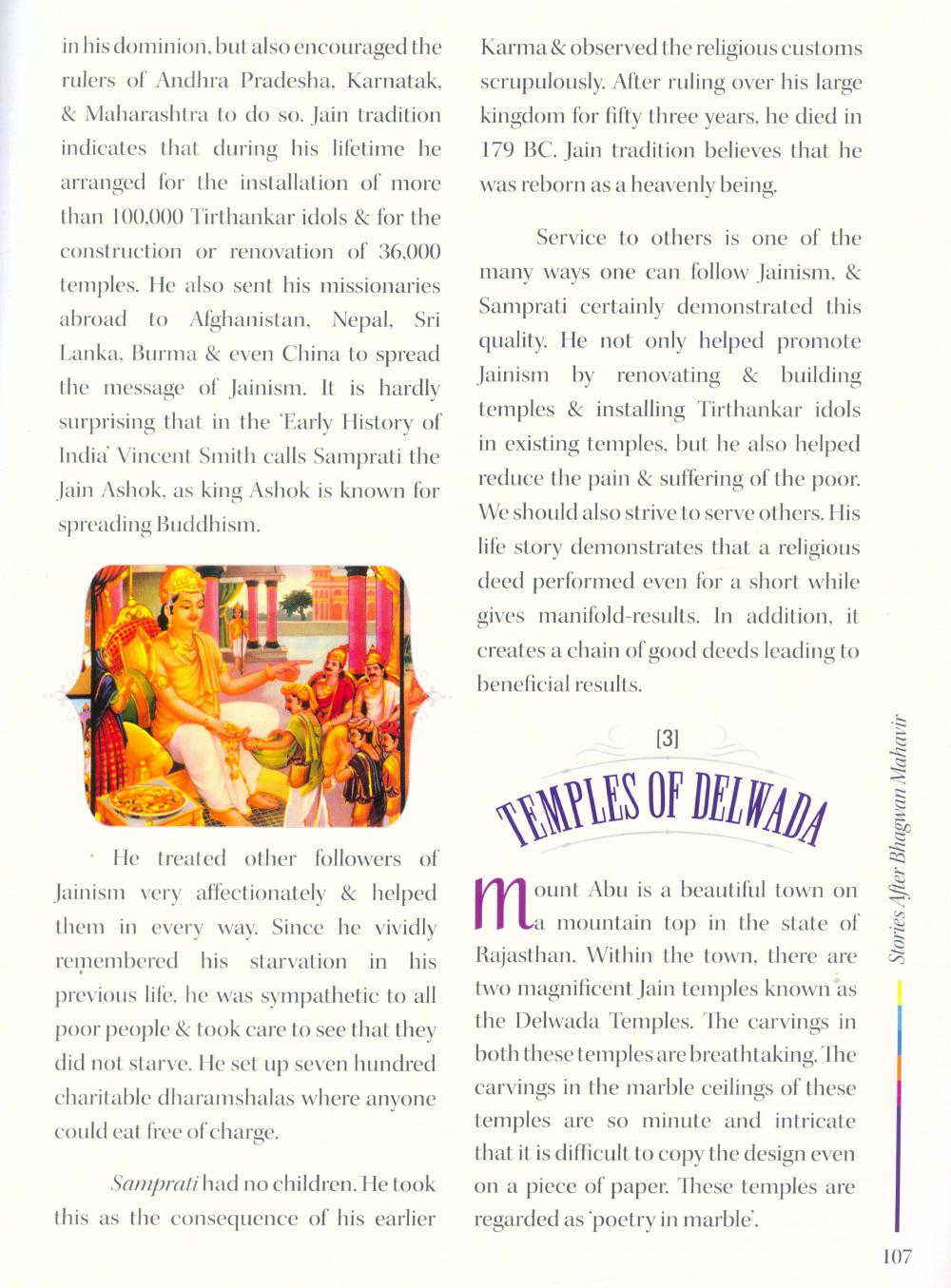________________
Karma & observed the religious customs scrupulously. After ruling over his large kingdom for fifty three years, he died in 179 BC. Jain tradition believes that he was reborn as a heavenly being.
in his dominion, but also encouraged the rulers of Andhra Pradesha, Karnatak, & Maharashtra to do so. Jain tradition indicates that during his lifetime he arranged for the installation of more than 100,000 Tirthankar idols & for the construction or renovation of 36,000 temples. He also sent his missionaries abroad to Afghanistan, Nepal, Sri Lanka, Burma & even China to spread the message of Jainism. It is hardly surprising that in the 'Early History of India Vincent Smith calls Samprati the Jain Ashok, as king Ashok is known for spreading Buddhism.
Service to others is one of the many ways one can follow Jainism, & Samprati certainly demonstrated this quality. He not only helped promote Jainism by renovating & building temples & installing Tirthankar idols in existing temples, but he also helped reduce the pain & suffering of the poor. We should also strive to serve others. His life story demonstrates that a religious deed performed even for a short while gives manifold-results. In addition, it creates a chain of good deeds leading to beneficial results.
[3]
TEMPLES OF DELWADA
Stories After Bhagwan Mahavir
He treated other followers of Jainism very affectionately & helped them in every way. Since he vividly remembered his starvation in his previous life, he was sympathetic to all poor people & took care to see that they did not starve. He set up seven hundred charitable dharamshalas where anyone could eat free of charge.
ount Abu is a beautiful town on
La mountain top in the state of Rajasthan. Within the town, there are two magnificent Jain temples known as the Delwada Temples. The carvings in both these temples are breathtaking. The carvings in the marble ceilings of these temples are so minute and intricate that it is difficult to copy the design even on a piece of paper. These temples are regarded as poetry in marble.
Samprati had no children. He took this as the consequence of his earlier
107




